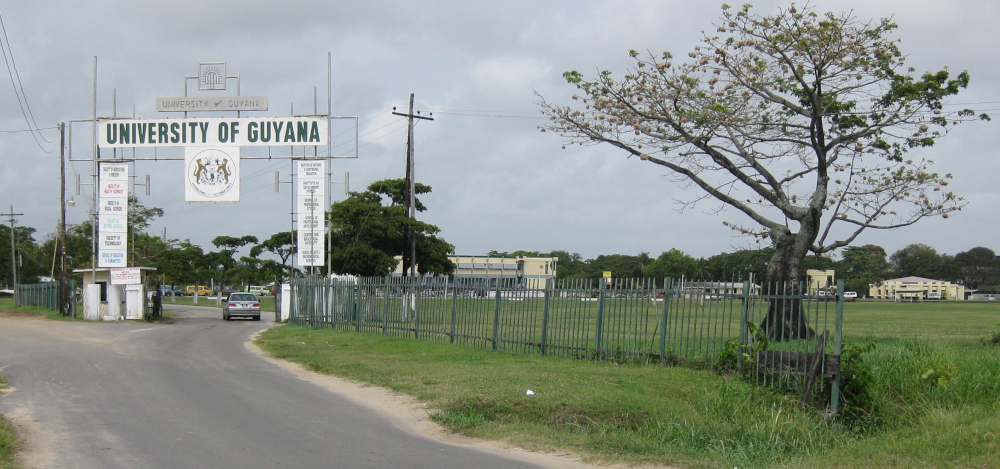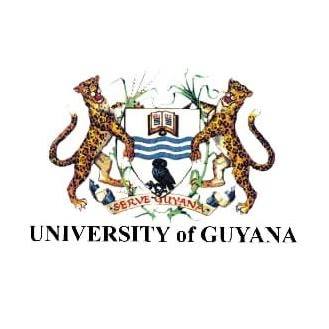Describe your organisation, its vision and mission.
The University of Guyana (UG) is Guyana’s sole national higher education institution. It was established in April 1963 with the following mission: “To discover, generate, disseminate, and apply knowledge of the highest standard for the service of the community, the nation, and of all mankind within an atmosphere of academic freedom that allows for free and critical enquiry.”
Several programmes are offered by the institution, including certificate, diploma, associate degree, undergraduate degree, graduate (post-graduate) degree, and professional degree programmes that delivered through six Faculties, one College and one School, each of which is headed by a Dean: Agriculture and Forestry; Earth and Environmental Sciences; Education and Humanities; Engineering and Technology, Entrepreneurship and Business Innovation, Medical Sciences, Natural Sciences, and Social Sciences.
The University offers 136 programmes in over 60 disciplines online and face-to-face in 8 campuses across Guyana. With a student population of now 10,000, UG has provided education, learning and research for over 50,000 alumni.
The University through the Faculty of Earth and Environmental Sciences has conducted research in the areas of environmental awareness and education; climate change; floods, urban issues; environmental health; community participation; eco-tourism; and water resources management. Consultancies have also been undertaken in biodiversity conservation; watershed management; land use planning, among others. The Faculty also collaborates with other institutions to implement activities in observance of World Water Day.
Notably, UG’s forward-thinking Blueprint 2040 is currently setting the course for the University’s future design and institutional response to the changing needs of Guyana.
How long has UG been a GWP Partner?
The University became a GWP Partner in 2010 with an expectation that opportunities for knowledge building and sharing and accessing educational materials on water resources issues and integrated management, plus networking with other institutions would be made possible.
What are the benefits of being a GWP Partner?
UG has benefited significantly over the past decade. Lecturers and students have had unconditional access to knowledge products to inform lectures, assignments and research.
Staff of the Faculty of Earth and Environmental Sciences have benefited from awareness and training activities that have undoubtedly built their capacity to address water resource management issues in Guyana, and have expanded their regional network that has provided additional opportunities for collaborative work.
Additionally, as an employee of the University of Guyana, I have the privilege of serving as a Member of the GWP Caribbean Steering Committee that provides of strategic direction of the GWP Caribbean Programme, including the implementation of the approved work programme and budget.
It is noteworthy that the GWP, through its Caribbean office, provided support to Guyana for the development of an Integrated Water Management Policy and Road Map.
Please share a challenge facing the management of water resources in your area of expertise.
I think that the lack of coordination among agencies that directly or indirectly affect the quality and/or quality of water resources is a persistent challenge. The institutional infrastructure to promote Integrated Water Resources Management (IWRM) may well be outlined in a document; however, there seems to be less motivation for implementation. Several reasons can be cited this: the traditional ‘silo’ approach to water resource management; the issue of someone’s ‘turf’ and lack of an engaging process; institutional fragmentation created by policy or legislation, among others.
Given the threat of the ENSO phenomenon and the existential threat of anthropogenic climate change, coupled with potential water insecurity, there needs to be a conscious effort aimed at promoting IWRM as a necessary framework.
Are there any special projects or initiatives that you would like more widely known?
The University of Guyana through the Faculty of Earth and Environmental Sciences offers a number of water-related courses, including the following:
- Environmental Chemistry;
- Practical Environmental Chemistry;
- Aquatic Sciences;
- Soil and Water Management and Conservation; and
- Water Resources Management
For more information, visit the Faculty website.
Top photo: User: Loriski, CC BY-SA 3.0, via Wikimedia Commons.


